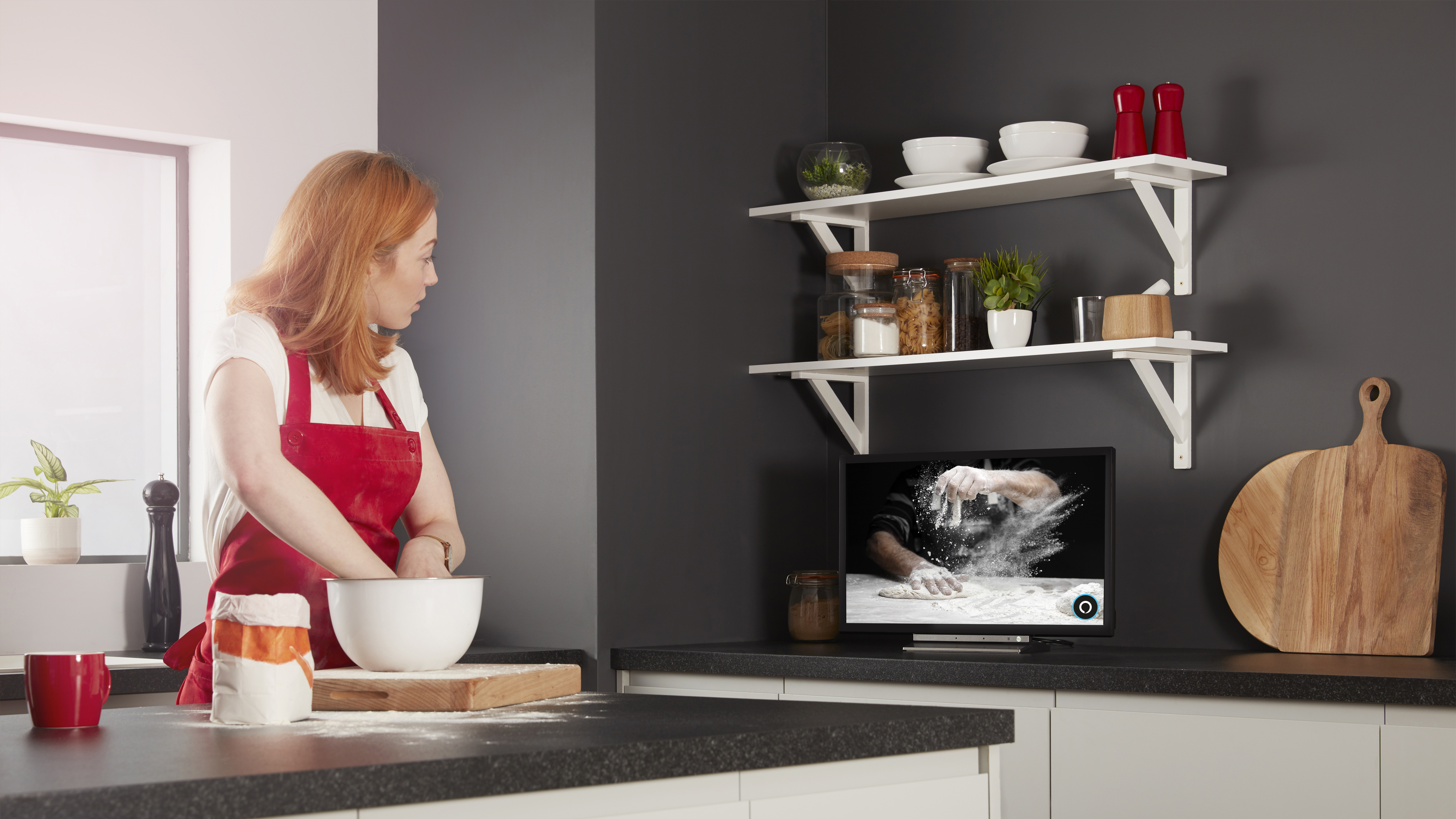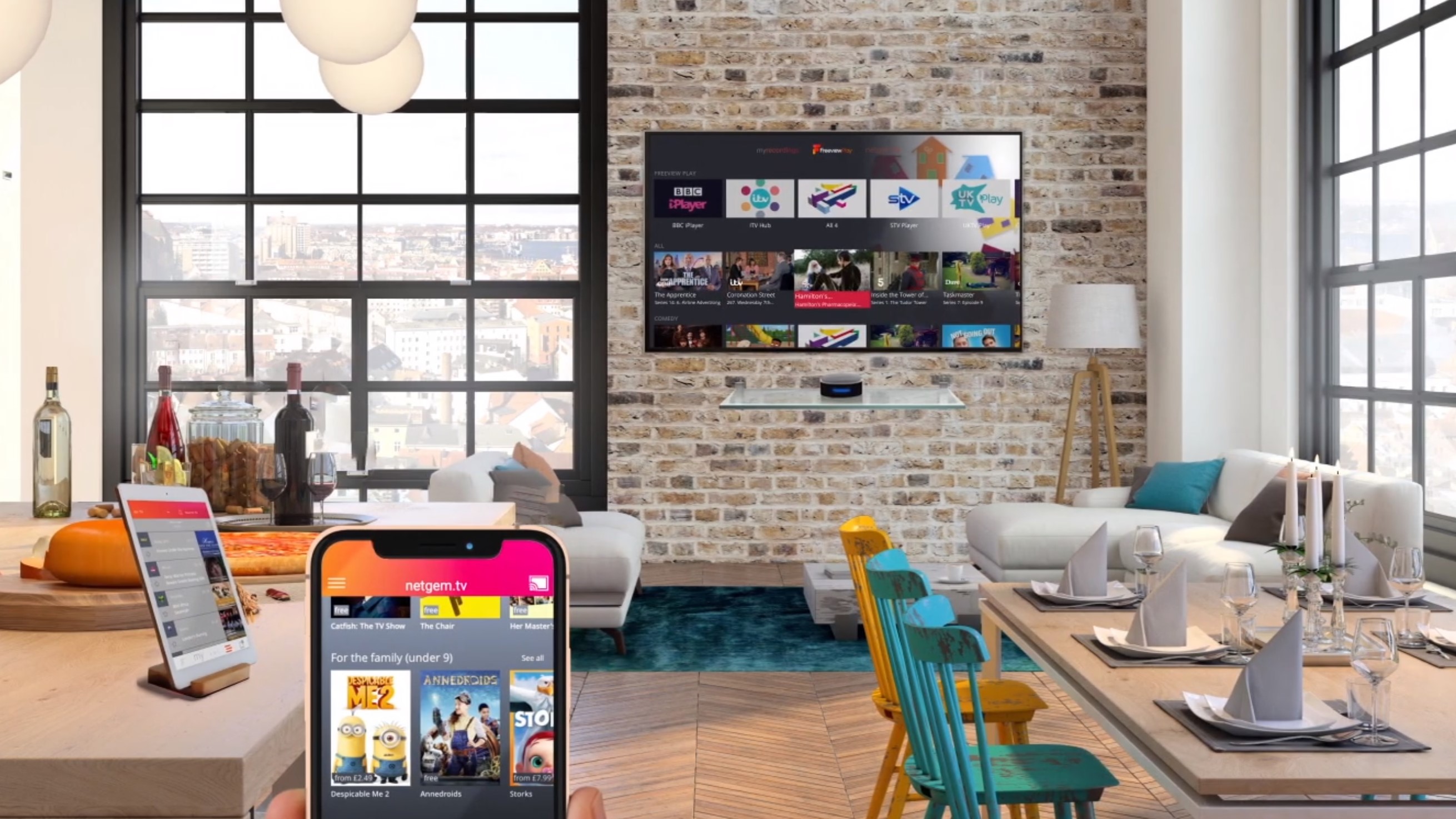Should you buy a second screen? Our guide to buying a cheap TV on the side
Considering a second screen? We’re here to help

After a second screen to take the pressure off your living room television? We wouldn't blame you. After all there are a lot of cheap TVs around these days and, by the looks of it, plenty of people are taking the opportunity to get smaller second screens into their home.
Why’s that? Well, in a time of self-isolation, having portals to the outside world – or just distractions from it – has never felt more important. And if you’re in a household with a few friends, relatives, or partners competing for ownership of the TV, getting an extra screen or two is often the simplest way to avoid confrontation – no more wrestling for the remote!
A second screen is also a great opportunity to watch TV more flexibly, adding a display into a new room not yet dominated by display devices. TV brands are clearly cottoning on to this, too, with Toshiba putting out a miniature HD TV designed for use in the kitchen, and plenty of mounted smart displays offering limited TV functionality in a more compact and portable form factor.
So if you’re considering a cheap second TV for your home, but you don’t know if it’s a good idea – or how much you should be paying – read on to find out.
Should I buy a second screen?
There are lots of reasons why you might consider a second screen. Maybe you want a personal screen for your own bedroom, or a small TV you can bring out when the kids have done their homework, without blasting their eyeballs with the 75-inch 4K TV you bought for watching movies on a massive scale. (Cartoons are generally in HD rather than 4K, and tend to look better on cheap TVs than real-life skin tones or more live-action programming too.)
James Parker, Head of TV Product Management at Samsung Electronics UK, tells us that an "increasing number of UK households now own more than one TV. Consumers are also more likely to purchase a second TV for their bedrooms which are generally more restricted with space".

The important thing is to make sure you’re budgeting appropriately. If this is a relatively short-term measure – say, just while more people than usual are stuck together at home – there’s not much point splashing out on a fancy OLED TV. Something in the $250-$350 / £250-£350 price range should do you just fine.
Not many televisions these days are HD or Full HD, but you can still find the odd one – like the Cello Netgem smart TV – while 4K TVs don't need to cost the earth.
And if you just want something to watch the news on, you won’t need all the flashy resolutions and HDR formats (Dolby Vision, HDR10+, etc) to get the information you need.
If you're after a display for the gamer in your home, check out our list of the best gaming monitors too.
Are cheap TVs reliable?
Yes and no. Cheap TVs are generally more at risk of being buggy, or having visual defects like video noise or frame rate judder – though if you don’t need exceptional picture quality, why bother paying for a TV with a high-end panel?
In summary: if you don’t need the world, try not to pay for it.
We’d only warn you against sets that profess high-end tech for a budget price. Dolby Vision HDR won’t really show up on a $300 / £300 / AU$450 screen, and the cheapest OLED TV out there – the Hisense O8B – was only semi-functioning during our review testing. Sometimes a cheap TV that knows its limits is best.
- Check out these top cheap TV prices
What about a smart display?
If you're after a second screen that's really compact. You may want to consider a smart display instead of a TV proper.
Smart displays are effectively mounted tablets with a mix of smart connective features and digital photo/video display. Many of them are aimed at providing second screens, say, in the kitchen, where you may want to watch a recipe tutorial on YouTube while cooking up a new dish. Some are explicitly designed for TV streaming services, too, as with the Amazon Echo Show – which is integrated with the Amazon Prime Video app. Netflix is hard to find on smart displays, sadly, except for the Google Nest Hub and Nest Hub Max.
- Read more: here are the best smart displays you can buy today
Sign up for breaking news, reviews, opinion, top tech deals, and more.

Henry is a freelance technology journalist, and former News & Features Editor for TechRadar, where he specialized in home entertainment gadgets such as TVs, projectors, soundbars, and smart speakers. Other bylines include Edge, T3, iMore, GamesRadar, NBC News, Healthline, and The Times.